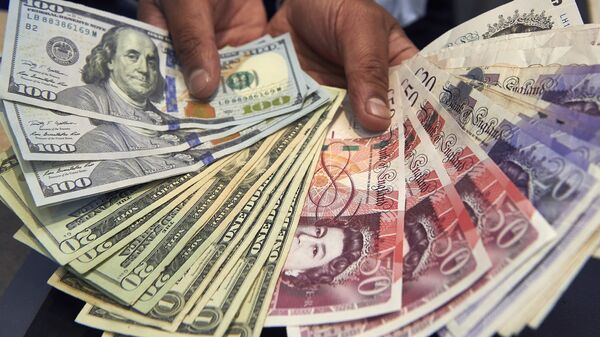Sputnik: In your opinion, how realistic are the plans by many countries to abandon the US dollar?
Steve Hanke: The plans to abandon the dollar are not very realistic. There is always a big gap between political rhetoric and reality. If you look at currencies and we go back, let's say roughly 2,500 years, there is always one international currency that dominates. It can be challenged, the king can be challenged, but it's very, very difficult: the average life of one of the international dominant currencies is about three hundred years. So, it's very hard to knock the king out. Usually, the king makes a mistake, like going to war and engaging in war financing and bad monetary policy resulting from that leads to a replacement of the dominant currency by another one.
READ MORE: Russia's De-Dollarisation Goes Full Throttle, US Can't Help But Notice It
Sputnik: It's very interesting you're mentioning this, with President Donald Trump's policy of isolation and "America First"; there has been a lot of discussions about this and with the current situation that the malaise between various economies around the world, especially with China, there is discussion about the renminbi (RMB) maybe also becoming the premier currency, maybe not for another 20-30 years. Do you think that there will ever be a day when maybe the RMB is in a position to challenge the US dollar?
Steve Hanke: At least the Chinese think it's a potential challenger, but you have to look at what makes up one of these big international currencies that dominates. For example, the dollar does dominate and number two is the euro. But the euro is really just a very important regional currency. The four factors that are required — the size of the transaction area has to be very big, you have to have very stable monetary policy, you have to have no exchange controls and capital controls, and you have to have a central state that's very powerful. Conceivably, China would have a big transactions zone or area, their monetary policy has been pretty good for the last 20 years and very stable, and they have a strong central state. But they have all kinds of exchange controls.
READ MORE: Yuan to Join Top 3 Global Currencies Club in 5-10 Years — CCTV Commentator
So right away, they've shot themselves in the foot and unless they get rid of the controls, it's not even a point of debate, really; it's almost silly. The transactions taking place in the RMB are just peanuts; you can hardly even find them statistically, if you look at things. You see, the dollar, let's think about it: it's used outside the area where it is legal tender, I mean, it's legal tender in the United States, it's legal tender in a few other countries like Panama, that is fully dollarised, and Ecuador is fully dollarised and El Salvador is fully dollarised, but generally it's used outside areas where it's legal tender and that's an indication of the dominance. All of commodities are priced in dollars, all grain, international commodities, big ones like oil, the pricing of manufactured goods, even in Europe.
The views and opinions expressed by the speaker do not necessarily reflect those of Sputnik.


